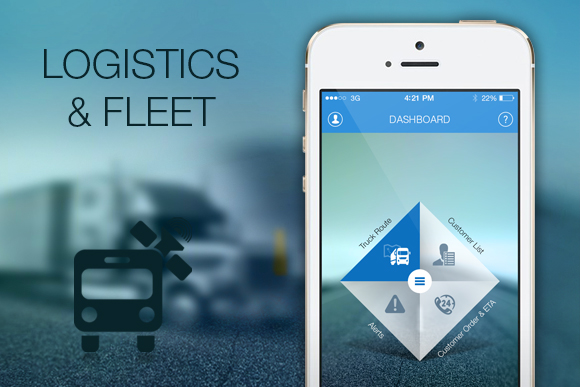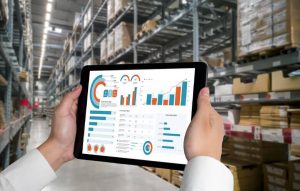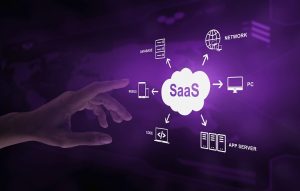In any area of work, enterprise utility tools are very familiar. In recent times, we perceive a steady rise in such software solutions at work. People keep thinking about enhancing their productivity by any means. You just search for one solution—you will be flooded with scores of them, each offering you up-to-the minute solutions! You are perplexed but certainly wish to adopt the expedient! The story is no different in the field of logistics and fleet management too. There is always a pressure to adopt the best, especially the mobile solutions to stay ahead of the competition!
Logistics
Logistics is defined as the management of flow of resources between the point of origin and the point of consumption. An efficient logistics system demands nothing less than competent administration of project/product life cycle. Organizational activities are interconnected and often perceived as a complex process. Understandably, in its evolving phase, many methods need to be introduced in order to accelerate the functional capability. Logistics is one such aspect which is implemented with an aim to have several positive impacts to the organization. A very reasonable and logical management of raw materials, transport channels, distribution, and supply chain ensures an organization to achieve its goals. As the time changes, the focus shifted to a mobility infrastructure that makes the entire logistics and fleet management systems more reliable and flexible.
Also, noticeably, the current automation practices have further influenced the conventional logistics to generate the best output. After all, who wouldn’t want an automated software update about their work especially while on the move? Therefore, we can firmly say that the entire scene has been changed with the introduction of mobility in logistics and fleet management software. To clarify further, let’s talk about some contributing components of logistics and fleet management.
Fleet Management
While logistics is considered as a broader aspect in optimizing functional capability of an organization, fleet management classifies itself to vehicle tracking and vehicle management. At present, what makes it noteworthy is that the new applications help the fleet management personnel to configure and manage the whole process as per the operational need. It includes a range of functionality such as vehicle maintenance, vehicle financing, driver management, fuel monitoring, communication management, and so on. All this has been introduced with a view of optimizing the overall functionality while obtaining maximum output. The implementation of logistics has already brought many advantages to enterprises. But the introduction of mobile solutions in the logistics and fleet management industry is set to revolutionize it even further. Look at the changes! Mobility has altered a whole lot of things—dispatch and scheduling, driver and vehicle tracking, driver productivity, fleet maintenance, load management, pick-up and delivery—everything has changed for the better!
In this day and age, the portable solutions are something each entrepreneur looks forward to have. Here, when it is all about logistics and fleet management, there are a lot of factors to consider because of which the executives seek foolproof solutions.
The role of mobility in logistics and fleet management
Constant communication is required for a better work flow management. Even an already streamlined workflow requires the most up-to-date solutions to face the heat of competition. There is continuous growth in every field and logistics is no exception. Fortunately, there is no shortage of smart applications and solutions to enhance the process. Cloud companies are providing seamless centralized data storage and retrieving capability which are in high use now. With the work force equipped with mobile devices such as smartphones and tablets which are connected to a GPS or NFC, tracking the fleet and managing them have become extremely viable. The fleet management process has been simplified with the implementation of logistics software.
Warehouse officers have found these solutions to be a great help in increasing their efficiency. It provides them greater visibility of the staff on field. Now they can track and trace the fleets effortlessly. The mobile logistic and fleet management applications offer a lending hand in optimizing the routes for the drivers, tracking the driver behavior, analyzing vehicle performance, fuel monitoring, accident reporting, introducing safety measures, mechanical diagnostics, liability and vehicle maintenance cost, driver efficiency, driver education, driver alerts and much more.
If floor managers are finding these applications to be phenomenal, the feelings of drivers and delivery staff too are noteworthy. The tablet or smartphone they carry provides them exceptional capability in acting as a middleman between the managers and customers. They can update the information right away while en route or on a delivery spot and can speed up the process. Many times, it saves them from a break down or a late delivery of goods. It helps in clear and error free documentation. In short, the communications remain accurate and quick and thereby save a great deal of time and money.
Advantageous Features:
- Accurate dispatch and scheduling
- Enables better vehicle tracking and locating
- Provides functionality in building routes based on network drive times and distance
- Enables instant messaging and call recording
- Enables paperless transaction
- Intelligent geographic routing using satellite maps
- Excellent geographical information systems
- Track driver productivity, fleet maintenance, and load management
- Ensures automated timesheets, invoice, and reporting
- Functionality to manage fleet cost
- Error free documentation
- Exporting routes and schedules to mobile devices
- Identifying route recurrence
- Building default routes
- Reduce environmental impact
To sum up, we can assure the fact that every innovation has its own way of influencing our lives and thus, this too can inspire us in more than one way. The mobility in logistics and fleet management has totally transformed the entire supply chain and fleet management field. The once complex system has been gracefully simplified now and well integrated with the current systems and the outcome is so splendid that everyone wants to get a piece of it!









